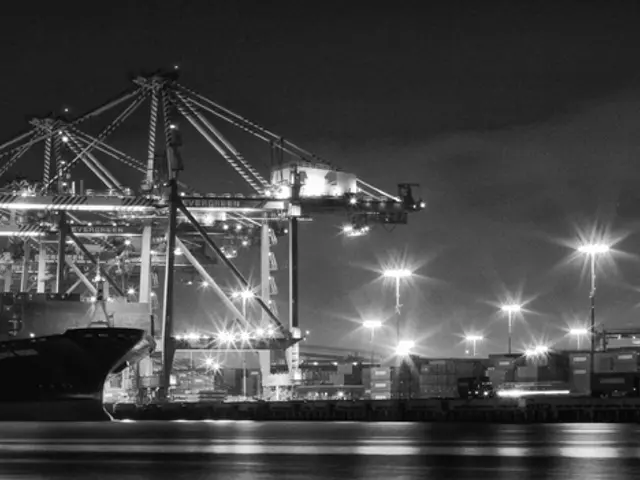Tightened Border Controls: The German-Danish Frontier Gets a Shake-up
Enhanced Checks Implemented at the German-Danish Border - Intensified Border Patrol at the German-Danish Frontier
Want to know what's brewing at the German-Danish border? Prepare for some serious shifts, my friend! The Federal Police, our trusty law enforcers, have been given a green light to ramp up their presence and patrols at this frontier.
Since mid-September 2020, these vigilant officers have been keeping a close eye on things. However, their mission has taken a more intense turn, with increased frequency and manpower. Yes, you heard it right! The Federal Police Directorate in Bad Bramstedt has confirmed the expansion of their operations, in accordance with an order from the Federal Ministry of the Interior, dated May 7. Incidentally, this comes after the new Federal Minister of the Interior, Alexander Dobrindt (CSU), announced plans to tighten the border's grip.
So, what's the deal? Well, the reinforcement could see asylum seekers being turned away at the border if they've already submitted applications in other European Union (EU) countries. But, fear not! This doesn't apply to pregnant women, children, or other vulnerable individuals. The Federal Police swear they're all about maintaining smooth traffic flow, a crucial aspect for cross-border commuters in the region.
Predictably, the news of intensified controls has drawn criticism. The Social Democrats in Schleswig-Holstein wasted no time in voicing their disapproval, with MP Birte Pauls asserting that they continue to oppose any controls at the German-Danish border. They believe that these measures could potentially undermine the progress made through European integration in the border region.
Curious about the bigger picture? Let's delve into the nitty-gritty. This intensification of controls is part of Germany's broader strategy to bolster border security, a move championed by Chancellor Friedrich Merz since May 2025. The aim? To curb irregular migration and enhance national security by keeping undocumented entrants from other EU states at bay. In fact, the German government has deployed an additional 3,000 federal border police officers, boosting the force to over 14,000, and has tightened entry procedures to deny entry to migrants lacking proper documentation. Furthermore, plans are in place for a swift deportation process for rejected asylum seekers, with increased detention capacity and federal police granted broader authority to detain those obligated to leave the country to facilitate removal.
Terrorism concerns and regional migration pressures have sparked this trend, with countries like Austria, France, Italy, Denmark, the Netherlands, Norway, and Bulgaria following suit to restore or strengthen internal border checks. Denmark, for instance, has already extended its border controls with Germany multiple times, acknowledging ongoing terrorist threats and the need for heightened police presence and identity verifications at the border to safeguard national security.
In essence, stricter border controls at the German-Danish frontier are indicative of a broader European shift to reassert internal border security within the Schengen zone, with a focus on combating irregular migration and terrorism threats. Buckle up, folks - it's a bumpy ride ahead! ⚓️🚔
- In line with the tightened border controls, the German government has announced a policy to ensure proper checks and vocational training for federal border police officers to maintain efficient traffic flow and enhance national security.
- With the ramping up of border controls, the focus on vocational training for federal police officers has increased, aiming to integrate them effectively in their roles and adhere to the community policy for secured borders.
- As a part of the overall strategy to strengthen border security, the inception of expanded vocational training programs for federal border police officers has been announced, reflecting the broader European shift towards combating irregular migration and terrorism threats within the Schengen zone.
- Critics, such as the Social Democrats in Schleswig-Holstein, have voiced concerns that such policies may undermine the general news of European integration, leading to increased policies-and-legislation and potential intervention in politics within the border regions.








